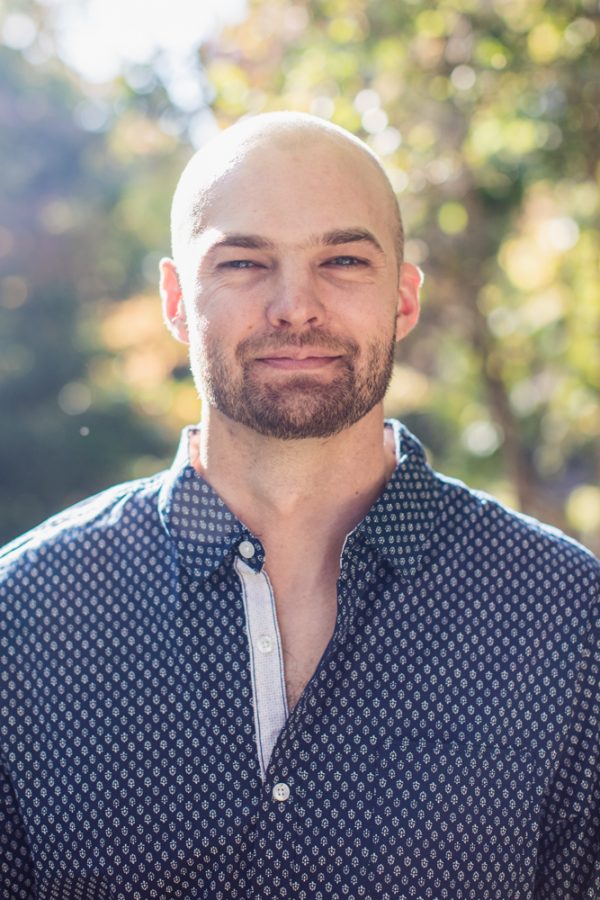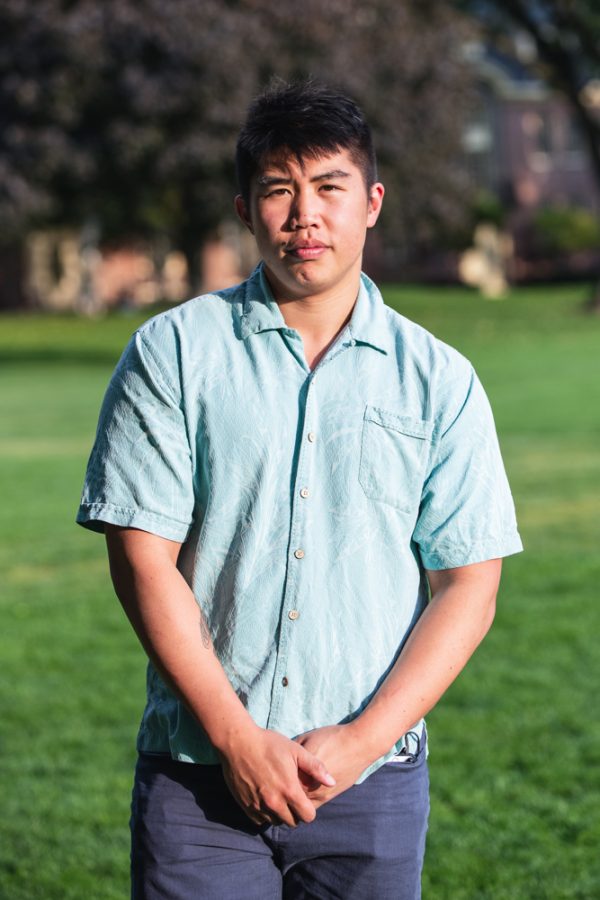Breaking the Standard: Non-Traditional Whitman Students
October 8, 2018
First-year Jake Lorang is the first to admit he sticks out like a sore thumb on Whitman campus.
A bald 38 year-old man, Lorang is not difficult to spot amongst a crowd of long-haired, Chaco-wearing college students.
“I’ve had a few [students] ask me if I was a teacher. It’s awkward,” Lorang said.
Despite his departure from the typical characteristics of a Whitman student, Lorang is just as much part of the student body as anyone else.
Like Lorang, there is another student enrolled at Whitman—Trung Vu —who differs from the normal Whitman student.
Although their backgrounds vary, it is clear that both are intelligent and caring individuals whose presence on campus is greatly valued.
A LIFETIME OF CURIOSITY
Lorang doubles as both a dad of three and a Whitman student.
He grew up in on a farm in Walla Walla and says the foundation of his life was raising chickens and cows as well as milking goats.
Lorang immersed himself in religious studies for 20 years by participating in church activities. Religion consumed and directed Jake’s initial life path, but he also read about philosophy, psychology and political theory in his spare time.
After a severe job-related injury, Lorang’s path suddenly changed. The injury created a circumstance for his studies to develop into something more than just an interest.
“I experienced a major paradigm shift when I decided to completely walk away from my previously formed religious beliefs,” Lorang said.
Part of this switch included leaving his job as a manual laborer to study at Walla Walla Community College. While there, a professor encouraged Lorang to pursue academics at Whitman.
“I wanted to redevelop my worldview, my professional skills and cultivate a focus for a deeper understanding of various disciplines,” he said.
Lorang voiced his appreciation for Whitman to providing him an opportunity to pursue an education at a reduced cost.
His newfound educational opportunity comes at a cost socially—he has experienced difficulties as a non-traditional student.
“I appreciate it when other students and staff talk to me, or at least don’t ignore me,” Lorang said. “Sometimes I get the sense that I really don’t belong.”
This social rift also affects Lorang’s experience academically.
“Being socially disconnected means that I miss key dynamics when trying to understand a subject or assignment,” Lorang said. “I don’t have the opportunity to ask a classmate what they think of something or if they understood something.”
Lorang also said that language is spoken differently in higher academia.
“A major disadvantage [with being a non-traditional student] is comprehending the language and culture of higher education,” he said. “Without help, I simply wouldn’t know what to do or what things mean.”
Lorang said he someday hopes to be perceived as a normal student.
“I struggle with the balance between becoming a better version of myself and not imitating an image of what society thinks I should be. I’m sure everyone struggles with that to some extent,” said Lorang. “I would argue that these challenges are much more apparent for someone like me. So, my short answer is no. I do not enjoy being a non-traditional student. I do enjoy being a student though.”

Jake Lorang
EDUCATION AND SERVICE
Junior Computer Science major Trung Vu was raised in Washington and initially enrolled in a large university after his high school graduation.
For Vu, it was the wrong choice.
“I did not enjoy the large classrooms or waiting in line to receive help from my professors during office hours,” Vu said. “I began thinking about my discontent and came to the conclusion that a more intimate learning environment would be paramount to my academic success.”
Once Vu concluded that a small school was the best fit for him, he chose to unenroll from the large university.
But he didn’t choose to go to a small school right away. He sought direction.
His direction was temporarily found through enrolling in the United States Marine Corps.
“I knew I wanted to travel and the Marines provided me with a paid opportunity to do exactly that,” said Vu.
As a Marine officer, Vu received the opportunity to travel across the coast of Southeast Asia.
“If you can name a country along the coast of Southeast Asia, I’ve likely been there,” Vu said.
It was during his military service that Vu devised a plan to return Washington to continue to pursue his education.
“With the help of the parameters that I made for myself, I knew Whitman was the clear choice,” Vu said.
Vu enrolled in Whitman aware that he would be an outlier. Whitman admissions informed him that he would be the single representative of military service members in the student body. Although not ideal for Vu, this did not sway his decision.
Besides his military service, Vu is unique in comparison to his classmates because of his age. Vu is 25 years-old. He finds his older age to be only slightly inhibiting in his experience as a Whitman student.
“My age and experience has allowed for connections with older students, but sometimes I feel as if I have been missing the experience of growing and connecting with my class. I have found it to be challenging to engage with some of my younger peers,” Vu said.
The lack of engagement with classmates has been somewhat compensated for as Vu just moved off campus and recently rescued a kitten from the Blue Mountain Humane society. The orange tabby cat spends most of the day with its eyes closed and goes by the name of Tulip.
Despite the nontraditional nature of Vu’s experience here, he said he has been content with his time at Whitman.

Trung Vu
Though their paths were indirect, Vu along with Lorang, is on his way to receiving his diploma at the end of his four years and pursuing his passions, just like us.





Diane M. Conroy • Oct 26, 2018 at 6:29 pm
Great story, cousin.